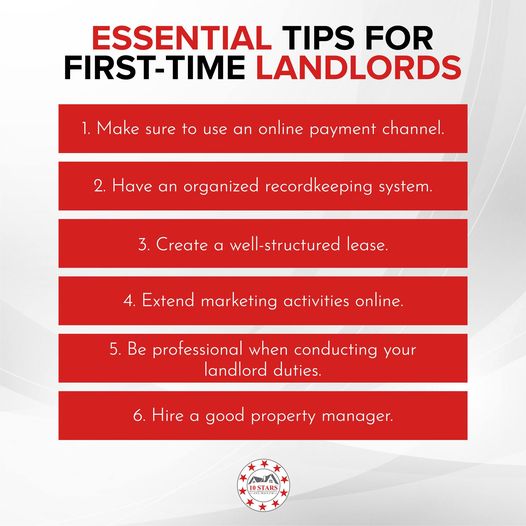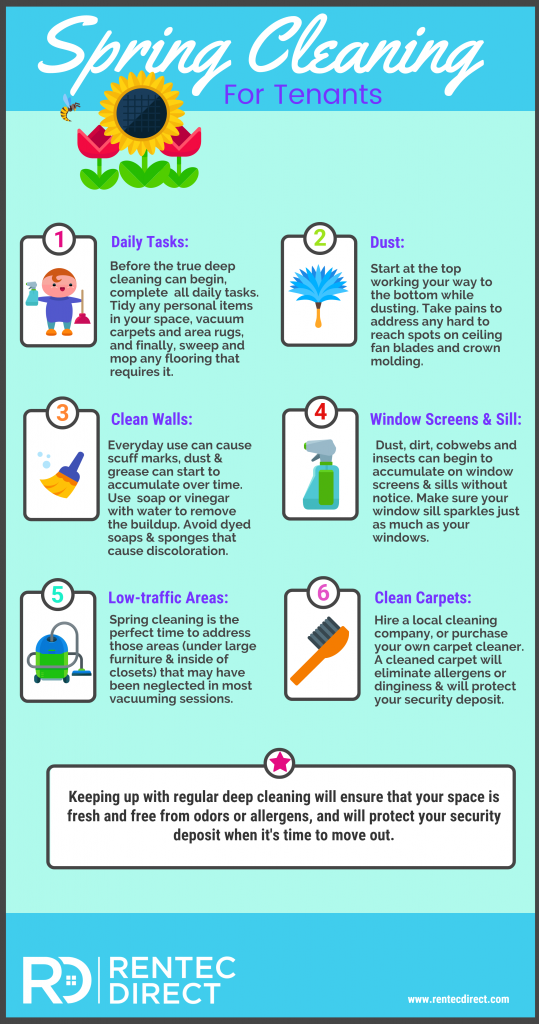Discover the key secrets to successful landlordship with our essential tips for renting out your property – don’t miss out!

Image courtesy of Ketut Subiyanto via Pexels
Table of Contents
- Introduction to Being a Landlord
- What Does It Mean to Be a Landlord?
- Finding the Right Tenants
- Setting the Rules
- Taking Care of Your Property
- Communication is Key
- What to Do When Problems Happen
- Money Matters
- Staying on the Right Side of the Law
- When to Ask for Help
- Keeping Track of Your Success
- Conclusion
- FAQs
Introduction to Being a Landlord
Hey there! Have you ever heard of landlords? They’re like your parents, aunts, or uncles who rent out houses to people. Being a landlord means taking care of a rental property and making sure everything runs smoothly. In this article, we’ll share some tips and tricks to help landlords manage their rental properties effectively. Let’s dive in!
If you’re curious about what it takes to be a successful landlord and want to learn how to handle everything from finding the right tenants to setting rules and taking care of your property, you’ve come to the right place. Let’s explore the world of being a landlord together!
What Does It Mean to Be a Landlord?
Being a landlord means taking care of a rental property and making sure everything is running smoothly. Just like how your parents take care of your home, landlords have a similar job but for houses they rent out to other people.
Responsibilities
Landlords have many responsibilities, such as fixing things that break in the house and following rules about renting out properties. They also need to make sure that their renters are happy living in the house.
Finding the Right Tenants
When it comes to renting out your property, one of the most important decisions you’ll make as a landlord is choosing the right tenants. Good tenants can help ensure that your rental property stays in good shape and that you have a positive renting experience. Here are some tips for property managers to help you find the perfect tenants for your rental home.

Image courtesy of 10starshomes.com via Google Images
Screening Your Tenants
Before allowing someone to move into your rental property, it’s essential to screen your tenants. Screening potential renters can help you learn more about their background, including whether they have a history of paying rent on time or taking care of previous rental properties. You can ask for references from previous landlords or an employer to get a better idea of the kind of tenant they might be.
Additionally, running a credit and background check on potential tenants can provide valuable information on their financial stability and whether they have any past criminal history. By thoroughly screening your tenants, you can feel more confident in your decision and protect your investment in the long run.
Setting the Rules
When you decide to rent out a house, it’s crucial to establish clear rules for your rental property. Rules help set expectations for both you as the landlord and your tenants, ensuring a smooth and pleasant rental experience for everyone involved. Let’s delve into why setting rules is important and the types of rules you may need to implement.
Rental Agreements
One of the primary ways to set rules for your rental property is through a document called a rental agreement. This agreement serves as a legal contract between you and your tenant, outlining the terms and conditions of the rental arrangement. Within the rental agreement, you can specify rules such as the rent amount, due date, maintenance responsibilities, and restrictions on activities like smoking or pets.
Taking Care of Your Property
As a landlord, it’s essential to keep your rental property well-maintained to ensure a comfortable and safe environment for your tenants. Regular maintenance is key to avoiding costly repairs and keeping your property in top shape.

Image courtesy of custodial.tenancydepositscheme.com via Google Images
Regular Maintenance
One important aspect of managing a rental property is to address any issues promptly. Fixing small problems as soon as they arise can prevent them from turning into major headaches later on. Regularly inspecting the property for maintenance needs, such as leaky faucets, faulty electrical outlets, or damaged appliances, can help you stay on top of repairs.
By conducting routine maintenance and addressing issues in a timely manner, you show your tenants that you care about their well-being and comfort. This can also lead to longer tenancy agreements and positive relationships with your renters.
Communication is Key
When you are renting out a house, one of the most important things to remember is that communication is key. This means that talking to your renters and listening to what they have to say is really important. By building a good relationship with your tenants, you can make sure everything runs smoothly and everyone is happy.
Building a Good Relationship
To have a good rental experience, it’s essential to establish a positive relationship with your renters. Being friendly, respectful, and understanding can go a long way in creating a comfortable living environment for everyone. When tenants feel valued and respected, they are more likely to communicate openly with you. This can lead to better cooperation, prompt reporting of issues, and overall improved maintenance of your property.
What to Do When Problems Happen
Sometimes, things may not go as smoothly as planned, even for the best landlords. Here are some tips on what to do if problems arise, like a leaky faucet or an unhappy tenant.

Image courtesy of www.rentecdirect.com via Google Images
Problem-Solving Tips
When something in the rental house breaks, don’t panic! Take a deep breath and think about how to fix it. It could be as simple as tightening a screw or changing a light bulb. If you’re not sure how to do it, ask for help from someone who knows how.
If a tenant is unhappy about something, like a noisy neighbor or a drafty window, talk to them calmly. Listen to what they have to say and try to find a solution that works for both of you. Good communication can go a long way in resolving issues peacefully.
Money Matters
Managing a rental property involves handling money in a smart way. Let’s dive into some essential tips for landlords to stay on top of their finances.
| Tip | Description |
|---|---|
| Screen Tenants Carefully | Perform background checks, credit checks, and obtain references to ensure you are renting to reliable tenants. |
| Have a Written Lease Agreement | Clearly outline rules, responsibilities, rent amounts, and procedures for repairs in a written lease agreement signed by both parties. |
| Set Clear Expectations | Communicate any expectations, rules, and procedures to your tenants from the beginning to avoid misunderstandings and conflicts. |
| Maintain the Property | Regularly inspect the property, address maintenance issues promptly, and keep the property in good condition to attract and retain tenants. |
| Understand Landlord-Tenant Laws | Be familiar with landlord-tenant laws in your state or jurisdiction to ensure you are following legal requirements and protecting your rights. |
| Respond to Concerns Timely | Address tenant concerns and repair requests promptly to maintain a good landlord-tenant relationship and prevent escalation of issues. |
Setting the Rent
When deciding how much rent to charge for your rental property, think about things like the size of the house, its location, and what other landlords in the area are charging. You want to set a fair price that covers your expenses and helps you make a profit.
Saving for Emergencies
It’s always a good idea to set aside some money for unexpected repairs or emergencies that might come up. By having savings put away, you can handle any sudden issues with your property without stressing about finding the funds at the last minute.
Staying on the Right Side of the Law
Taking care of a rental property isn’t just about fixing things and collecting rent. Landlords, like your parents, aunts, or uncles, also need to know and follow the rules. This helps make sure everyone is safe and treated fairly. Let’s dive into why it’s crucial for landlords to stay on the right side of the law.

Image courtesy of u1strealty.com.au via Google Images
Knowing Rental Laws
rental laws are like a set of rules that landlords must follow when renting out houses. These rules can be about how safe the house needs to be, how much notice a landlord needs to give before entering the property, or how to treat renters fairly. It’s important for landlords to understand these laws to avoid getting into trouble.
When to Ask for Help
As a landlord, it’s essential to know when to ask for help. Here are some situations where reaching out for assistance is a smart move:
Hiring Experts
There are times when landlords may encounter problems that are beyond their expertise. In such cases, hiring specialists like plumbers, electricians, or lawyers can be a wise decision. These professionals have the skills and knowledge to handle specific issues effectively, ensuring that the rental property remains in good condition and all legal matters are handled correctly.
Keeping Track of Your Success
As a landlord, it’s important to know how well you’re doing in managing your rental property. Here are some ways to keep track of your success and make sure everything is running smoothly.

Image courtesy of caspianrealty.com via Google Images
Success Indicators
One way to measure your success as a landlord is by looking at certain indicators that show you’re doing a great job. For example, if all your rental houses are occupied and there are no empty homes, that’s a good sign. It means renters want to live in your properties. Another indicator of success is if everyone is paying their rent on time. This shows that your tenants are happy and can afford to live in your rental homes. These are just a couple of examples of how you can measure your success as a landlord.
Conclusion
In conclusion, being a landlord is a big responsibility, but with the right tips and guidance, anyone can be successful at managing rental properties. Remember, setting clear rules, maintaining good communication with tenants, and staying informed about rental laws are essential for a smooth renting experience. By following the advice in this article, landlords can foster positive relationships with tenants, address issues effectively, and ultimately create a thriving rental property business.
FAQs
How do I decide how much rent to charge?
Renting out a house involves figuring out how much money to charge the people who live in it. The rent amount usually depends on a few things, like how big the house is, where it’s located, and what other landlords are charging for similar places. It’s like trying to find a fair price that both you as the landlord and your renters are happy with.
What happens if my renters don’t pay?
If your renters don’t pay their rent on time, it can be a tricky situation. The first step is to communicate with them and try to understand their situation. You can remind them politely about the rent due date and ask if they are facing any problems. If the issue persists, you may need to follow the legal process in your area for handling late or unpaid rent. It’s important to stay calm and handle the situation professionally to find a solution that works for both parties.
Idaho Poperty Management
